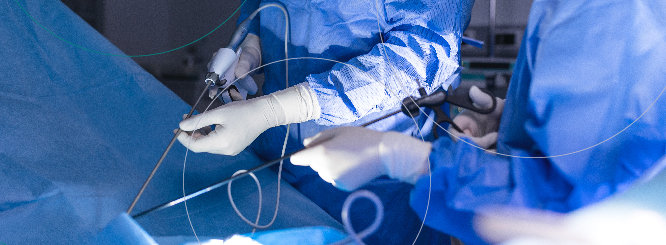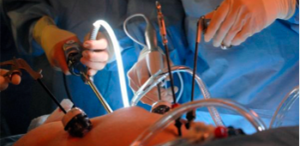
Weight loss surgeries like bariatric surgery imply going through certain processes, running various tests, evaluating the patient’s health, identifying any medical conditions, and determining the suitability for the procedure. The specific tests may vary depending on your surgeon’s preferences, but there are some common tests that you will need in order to get bariatric surgery.
Weight loss or bariatric surgery has gained great acceptance in recent years and it seems that we all know someone who has gone through it or is in some way considering it. Bariatric surgery is part of a treatment with the potential to change your life, but you will have to make drastic changes for it to work and it is essential that you choose the right time to do it.
Therefore, if you decide to undergo bariatric surgery, there are some tests you will need to get before going into the operating room. Here are some specific requirements that may be necessary to start your process.
General Consideration and Researching Bariatric Surgery Centers
Look for reputable bariatric surgery centers or hospitals in your area that offer the procedure you are interested in. Consider factors in surgery center experience, success rates, and patient reviews.
- Inform yourself: Attend informational sessions or seminars. Many bariatric surgery centers conduct informational sessions or seminars to educate potential patients about the procedure, risks, benefits, and lifestyle changes associated with surgery. Attend these sessions to gather more information and have an opportunity to ask questions.
- Schedule your appointment with a bariatric surgeon: During this consultation, the surgeon will assess your medical history, and current health condition, and determine if you meet the criteria for bariatric surgery. Depending on the surgeon’s recommendation and your health condition, you may need to take certain medical tests before the surgery. These can include blood tests, imaging studies, psychological evaluations, and consultations with specialists to address any underlying health issues.
- Insurance verification: If you have health insurance coverage, you might need to contact your insurance provider to determine if bariatric surgery is covered and what the requirements are. Insurance companies often have specific criteria that patients must meet before they will cover the procedure. Understanding your insurance coverage and any potential out-of-pocket costs is important.
Once you have completed the necessary assessments that your doctor required and you met the criteria set by the surgeon and your insurance company, the bariatric surgery center will assist you in obtaining pre-authorization from your insurance provider. This process ensures that your insurance will cover the surgery. After this, you will be able to schedule the surgery. The availability of surgery dates may vary depending on the center’s agenda and the availability of the surgical team.
It’s important to note that even with these steps, there may still be some waiting time involved due to the demand for bariatric surgery. The process can also vary depending on the healthcare system and the specific requirements of the center you choose. Make sure you are up to date with all the tests and assessments in order to set the appointment when you and your clinic are ready. Now, as we mention some tests to be done before having the surgery, here are a few examples of these:
Tests Done Before Bariatric Surgery
First, your doctor must start with a physical examination to assess your general health status, including vital signs, body mass index (BMI), and any physical abnormalities that may affect the surgery.
Blood tests come second and are performed to evaluate various aspects of your health, such as complete blood count (CBC), liver function tests, kidney function tests, lipid profiles, blood sugar levels (including fasting glucose and hemoglobin A1c), and hormonal assessments.
Nutritional evaluation is another test because it helps determine your current dietary habits, nutritional deficiencies, and potential risks related to malnutrition or nutrient deficiencies post-surgery. It may involve dietary interviews, analysis of eating patterns, and blood tests to check for nutrient levels like iron, vitamin D, and vitamin B12.
Electrocardiogram, CXR, and abdominal ultrasounds might be necessary to evaluate the structure and condition of your liver and other abdominal organs, and identify any abnormalities or signs of liver disease and cardiac conditions.
Last, but not least, sleep and psychological studies. Having sleep apnea or a history of breathing difficulties during sleep, you might need a sleep study. This test helps diagnose and evaluate the severity of sleep-related breathing disorders. Also, psychological study is needed mostly because insurance companies are involved and may require it. Most psychologists will evaluate your understanding and knowledge of the risks and complications associated with weight loss surgery and your ability to follow the basic recovery plan.
It’s important to remember that these are only a few tests you will need to get before having bariatric surgery and the specific tests and assessments may vary depending on your individual circumstances and the requirements of your doctor. Your bariatric surgeon and their team will guide you through the necessary evaluations and tests based on your unique situation.
Once your test and results are done, you will be one step ahead of the process and the signs that suggest that your moment to have bariatric surgery has come are the following:
- You have tried other methods to lose weight, even with medical supervision, and you have failed.
- You have developed illnesses associated with obesity such as high blood pressure, sleep apnea, fatty liver or type II diabetes, among others.
- Your BMI (body mass index) puts you within the range of obesity.
- You find it difficult to move around and are less involved in social and family activities.
- You are ready to change your way of eating forever.
- You know the operation is not a magic solution and are willing to do the necessary work.
- You can organize your schedule to fit in exercises 5 to 6 times a week.
- You believe you are emotionally stable and willing to undertake a change of life.
- You know that it is possible to gain weight back and are willing to commit to a permanent change of habits to prevent this from happening.
- You’ve researched bariatric surgery and have found a doctor who offers comprehensive care, including the follow-up needed to make your process a success.
- You feel that you can be completely open with your doctor and he or she has taken the time to answer all your questions.
- The facility you chose has a full staff, is properly accredited, and provides you with printed or digital support material to keep you well-informed about every step of your process.
Please keep in mind that you should not let anyone pressure you into having weight loss surgery. This is not a decision to be taken lightly or in a moment of sheer despair; it is a lifelong decision, which you have to prepare for.
Now, as well as the preparation for the surgery, there are also steps to follow after you had your bariatric surgery. As we mentioned, it might include some life-changing actions and routines that you must follow in order to stay away from complications.
After Bariatric Surgery
Recovery time
This will depend on the type of surgery you need. The chances to start walking the very same day of your surgery are normal because most patients do. However, there are still several weeks ahead in which you must take special care of yourself and will have to hold back on lifting heavy objects, driving, or performing strenuous exercise.
You should choose a time in which you can take a break from your job and social commitments. This pause may be brief, but if your job requires that you lift heavy objects, live in an upper level with no elevator with no help or you have to carry bags or packages, you will need to make the necessary arrangements.
Contact Us to Learn More
If you want to learn more about bariatric surgery and when it’s the right time to get it, schedule an appointment with one of our doctors. We can help determine the right treatment for you. Contact us online anytime or give us a call at (619) 373-0229.
References
- [1] “Bariatric Surgery”. https://www.mayoclinic.org/tests-procedures/bariatric-surgery/about/pac-20394258. (Accessed June 14, 2023).
- [2] “Diagnostic Tests for Bariatric Surgery”. https://stanfordhealthcare.org/medical-treatments/b/bariatric-surgery/procedures/diagnostic-tests.html. (Accessed June 14, 2023).
- [3] “Patient Guide to Bariatric Surgery”. https://www.cedars-sinai.org/programs/weight-management/patient-guide.html. (Accessed June 14, 2023).
- [4] “Requirements for Bariatric Surgery”. https://stanfordhealthcare.org/medical-treatments/b/bariatric-surgery/procedures/requirements.html. (Accessed June 14, 2023).
- [5] “Preparation for Bariatric Surgery”. https://www.ecommunity.com/services/community-bariatric-and-medical-weight-loss-services/faq/preparation-for-surgery. (Accessed June 14, 2023).
- [6] “Bariatric surgery and insurance FAQs”. https://uihc.org/health-topics/bariatric-surgery-and-insurance-faqs. (Accessed June 14, 2023).


